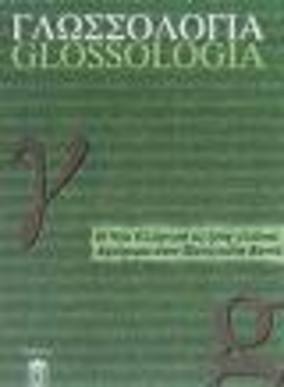Μέτρηση της ρινικότητας σε ελληνόφωνο πληθυσμό : διαγλωσσική σύγκριση
Part of : Γλωσσολογία ; Vol.18, 2010, pages 25-36
Issue:
Pages:
25-36
Abstract:
The goal of this study is to obtain normative nasalance scores for Greek-speaking adults. Nasalance is an objective, indirect measure of nasalance, derived from the ratio of nasal acoustic energy over the total acoustic energy, nasal and oral, which lies in the speech signal. The Nasometer was used as the tool for obtaining the measurements. Some additional objectives of the study were to determine whether nasalance scores are influenced by speaker’s gender and type of linguistic material employed. A further goal was to conduct cross-linguistic comparisons with published data. 80 adults, 40 monolingual males, 18-32 years old and 40 monolingual females, 18-34 years old, served as subjects. Τhe linguistic material consisted of syllable sets, sentences and passages which were oral, nasal or balanced for the Greek language. The results did not reveal any gender differences in contrast with other languages. Nasalance scores differed depending on the type of linguistic material used. The cross-linguistic comparison of Greek with other languages and dialects such as Flemish, Finnish, Cantonese, Puerto Rican Spanish, Canadian English, N. American and Danish revealed that spoken Greek contains lower nasalance than the other languages examined. The present nasalance norms are of significant clinical value since they can be used for assessment of velopharyngeal competence and for the development of therapeutic protocols in Greek-speaking adults. Some consequences of the increased orality demands of Greek on speech production are briefly discussed.
Subject:
Subject (LC):
Keywords:
ακουστική ρινικότητα, αντήχηση, διαγλωσσική φωνητική, λογοθεραπεία
Notes:
Περιέχει πίνακες, διαγράμματα, παράρτημα και βιβλιογραφία




